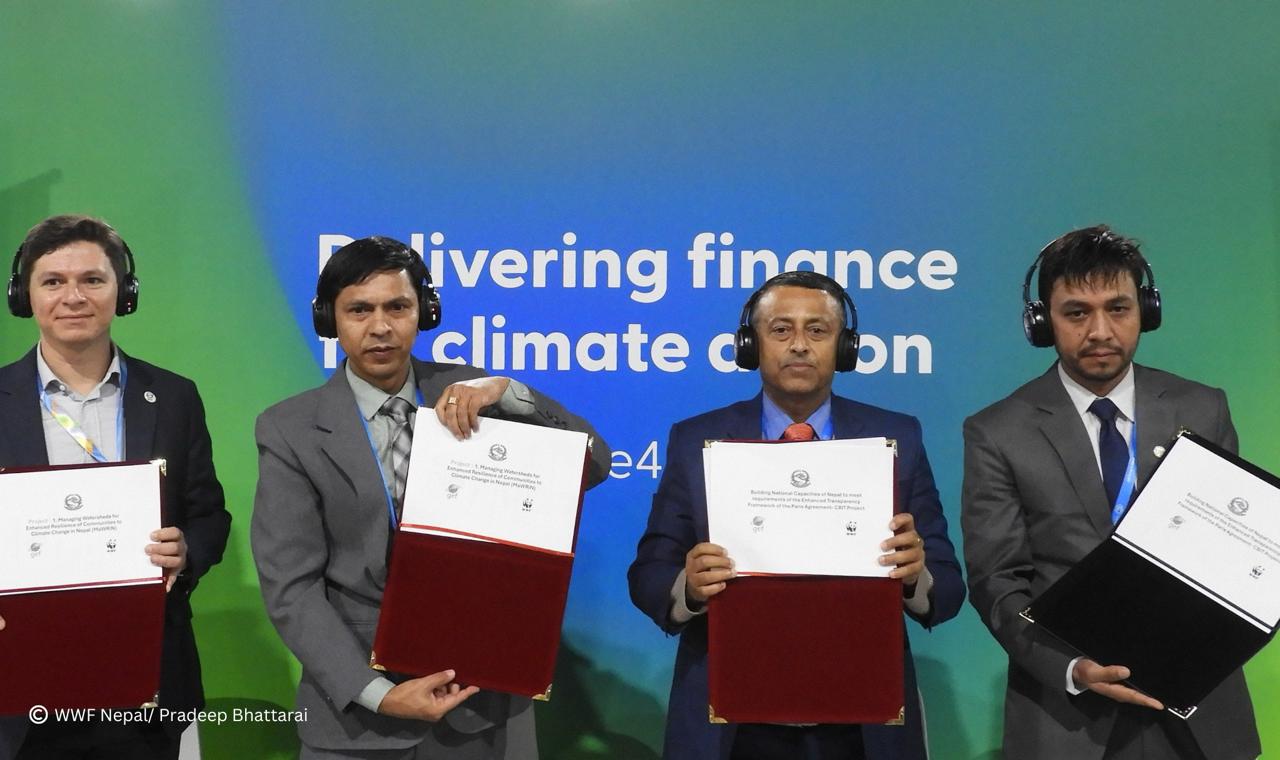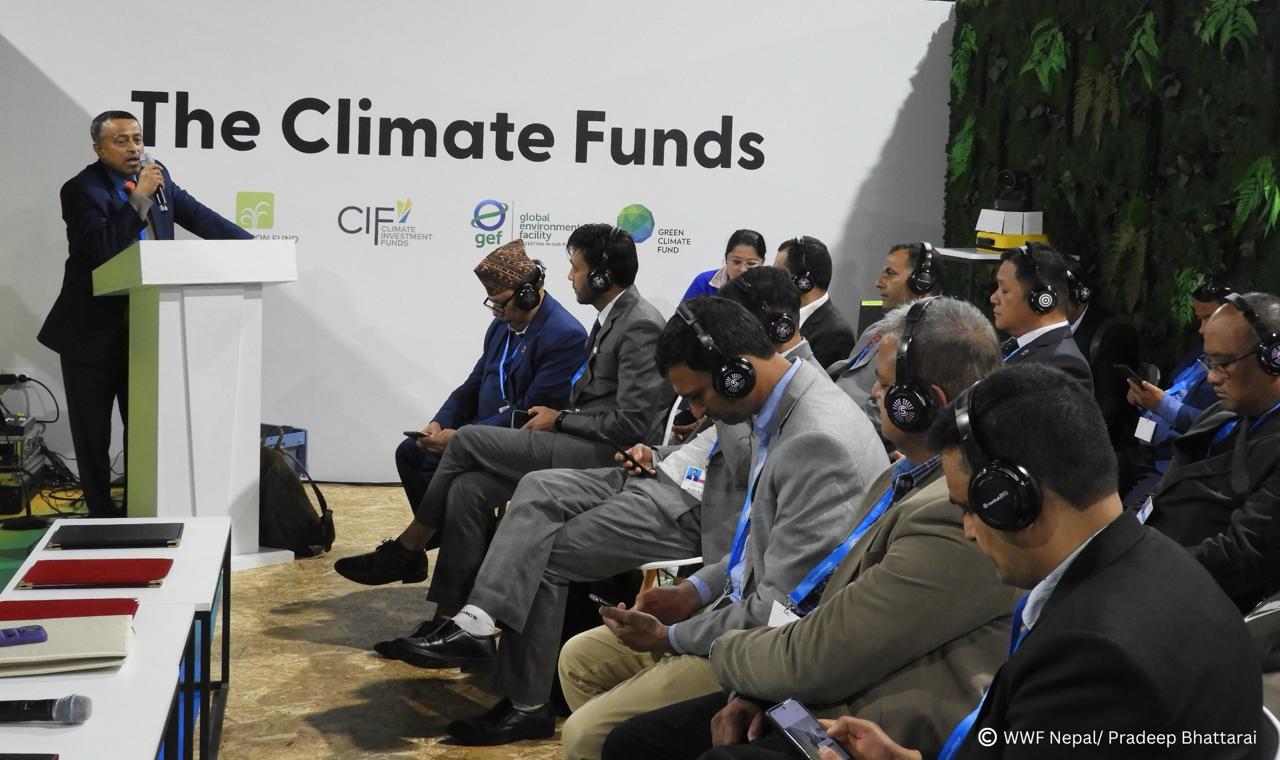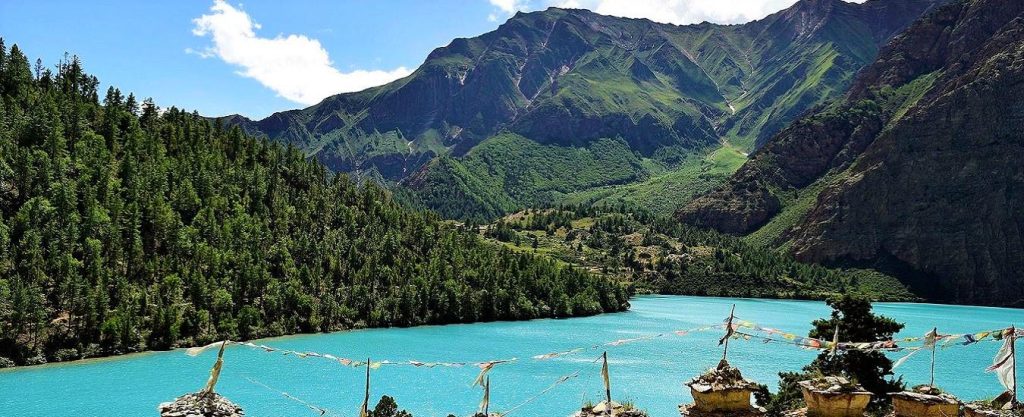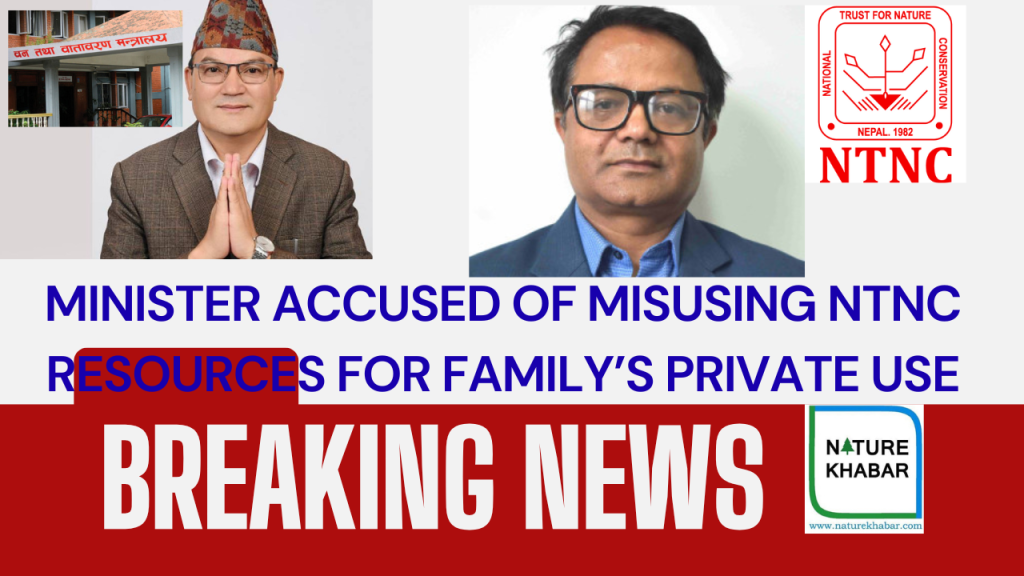Nepal’s COP 29 Scandal: Old Projects Passed Off as New Milestones
- Nature Khabar
 The team of Nepal presenting Baku as the start of the projects that are already being implemented in Nepal. : Photo courtesy - WWF
The team of Nepal presenting Baku as the start of the projects that are already being implemented in Nepal. : Photo courtesy - WWF
Kathmandu – Nepal’s massive delegation, led by Forest Minister Ain Bahadur Shahi Thakuri, has come under fire at COP 29 in Baku, Azerbaijan, for allegedly misleading the global community.
Projects that had already been under implementation in Nepal for months were re-launched at the conference as if they were brand-new initiatives. These projects were presented as significant achievements of COP 29, sparking outrage over the credibility of Nepal’s actions at such a critical international platform.

On the second day of COP 29, the Ministry of Forestry, in collaboration with the Global Environment Facility (GEF), held a program to announce the launch of two projects worth $10 million. However, it was revealed that these projects had already been signed and implemented months earlier. One project, focusing on increasing resilience in the Marin watershed, was signed in September 2024, while the other, related to monitoring Nepal’s climate progress under the Paris Agreement, was signed just weeks before the conference. Despite this, the projects were re-launched in Baku to showcase “achievements.”
A Nepali representative at the conference, speaking anonymously, expressed disappointment, saying, “It’s as if they’re trying to show off their work by rebranding old initiatives. Not just Nepalese, but the global community has been deceived. If they were genuine, they wouldn’t need to fake new launches. This only tarnishes Nepal’s reputation.”

Adding to the controversy, Nepal sent an unusually large delegation to COP 29, with over 40 representatives, including President Ramchandra Paudel, 9 people led by Forest Minister Shahi Thakuri, and 31 others. Despite the lack of official details about their roles and responsibilities, reports suggest the delegation included seven joint secretaries from the Ministry of Forests and Environment, along with deputy secretaries, officers, and other staff. Critics argue this was an unnecessary use of public resources.
One former forest secretary remarked, “This isn’t about negotiations or meaningful discussions. It’s about allowances, foreign travel perks, and sightseeing. This trend of bloated delegations has continued despite efforts to stop it.”
Among the delegation members were key officials from the Ministry of Forests, including Forest Secretary Dr. Deepak Kumar Kharal, Climate Change Management Division Head Sindhuprasad Dhungana, and Loss and Damage Board Member Maheshwar Dhakal. The team also included representatives from GEF and WWF Nepal, as well as several media personnel and experts.
The Ministry of Forestry has faced questions from oversight authorities regarding the necessity and justification for sending such a large delegation. Critics have demanded answers about the roles and responsibilities of those who attended, as well as the transparency and efficiency of Nepal’s participation in COP 29.
 This incident has once again highlighted the need for greater accountability and integrity in Nepal’s approach to global climate conferences. Rather than focusing on genuine contributions, the excessive participation and rebranding of old projects reflect poorly on the country’s commitment to addressing climate change.
This incident has once again highlighted the need for greater accountability and integrity in Nepal’s approach to global climate conferences. Rather than focusing on genuine contributions, the excessive participation and rebranding of old projects reflect poorly on the country’s commitment to addressing climate change.




Feedback